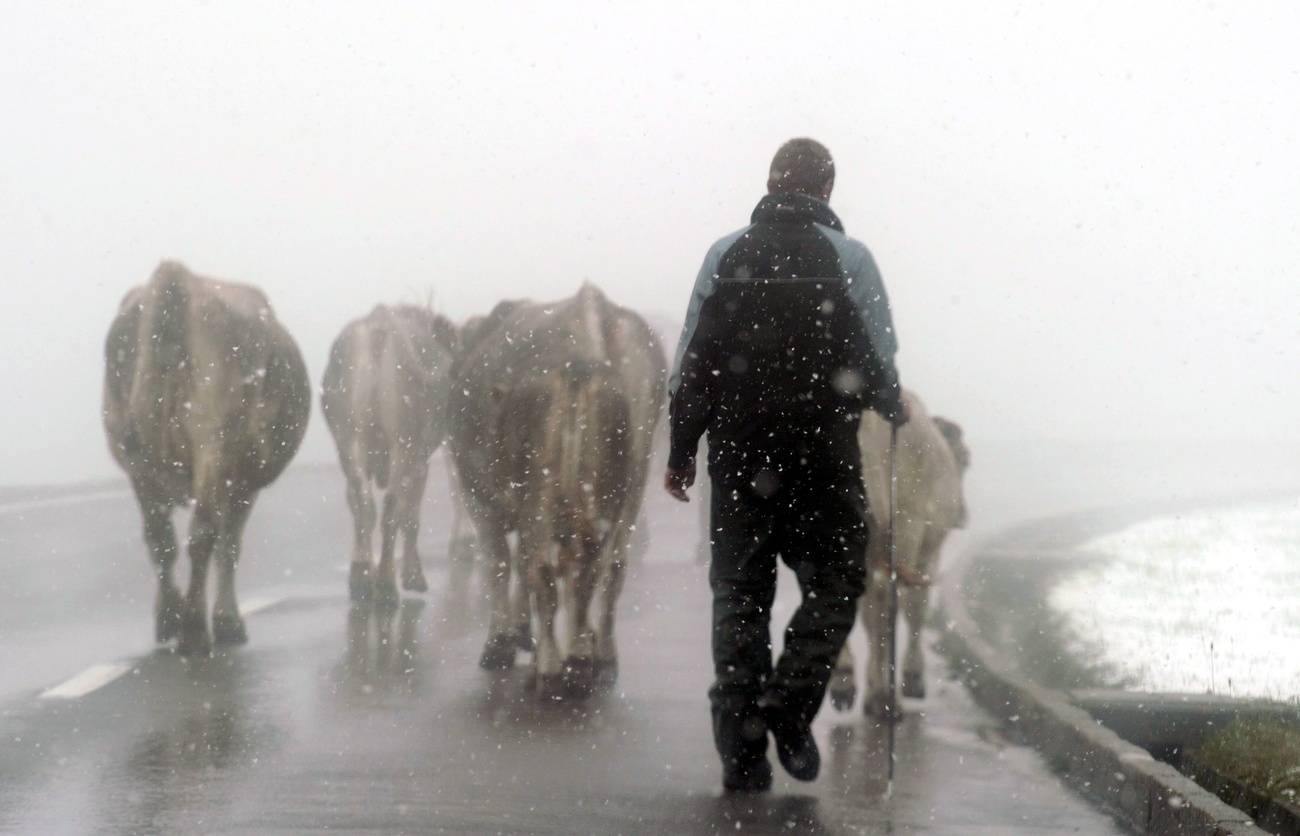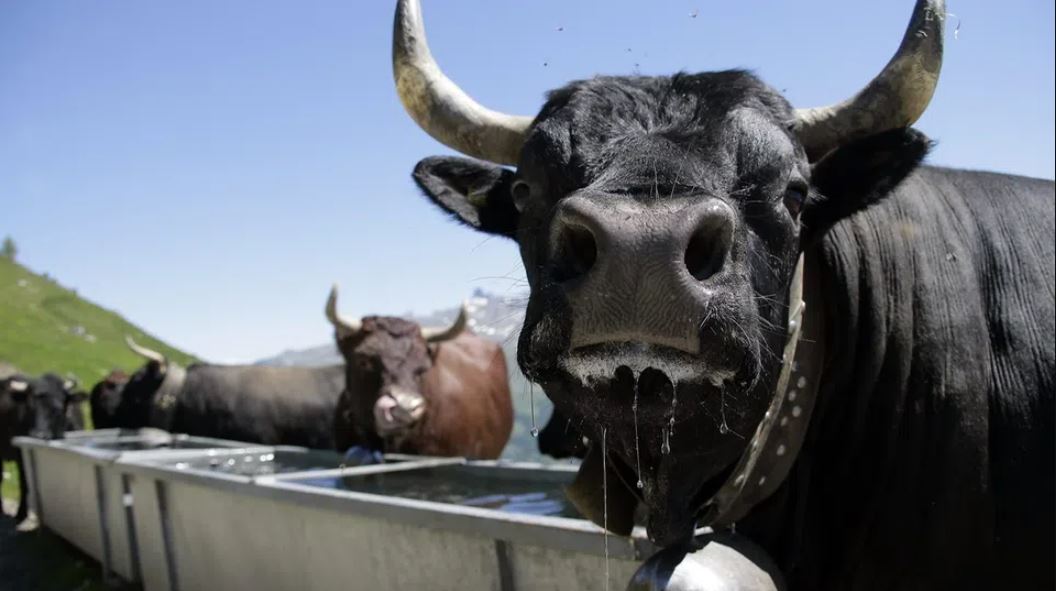What do Alpine farmers do in the winter?

The summer season ended for Alpine farmers around a month ago, when they brought their animals down from the mountains. For some, the hunt for a winter job now begins.
Where cows and goats grazed a few weeks ago, the first snows of winter have arrived. By now, most of the 7,000-odd Alpine farms in Switzerland have been left to the rustic, fairy-tale landscape of the winter mountains.
But for the farmers who came back down to the valleys with their animals, the winter season is now beginning – as is the search for a job.
Seasonal work
Only a small amount of the 17,000 Alpine farmers in Switzerland also have a farm in the lowlands. Most of them spend the summer season “up on the alp”, before in winter they take on another job, in a ski station for example. But such seasonal work usually only starts in December.
“There’s obviously then a danger that in autumn and spring, certain months are not easily covered by income,” says Erich von Siebenthal from the Swiss Association for the Alpine Economy.

More
Alpine farmers prepare for water shortages
That said, more and more local companies are now giving their employees time off in the summer so that they can work in the mountains, then return to the day-job in winter. While the summer farming work is intense, it’s not a big earner, and people are dependent on steady income out of season.
In canton Graubünden, farmer’s associations negotiate non-binding wage levels, which are then taken as a reference value by Alpine farms across the country. Depending on the type of job and the level of experience and training of the farmhand, such wages come to around CHF177-255 ($200-288) per day – but the working day can last up to 11 hours.
And in order to be able to pay out sufficiently high wages, farmers are dependent on state assistance – “it doesn’t work otherwise”, says von Siebenthal.
On the slopes
The Zimmermann family from the Linth valley in Glarus have been working summers “up on the alp” for years, and until now has always managed to make ends meet. Rebekka Zimmermann has just finished her 14th season on a high-lying farm; back down at home, she returns to her accounting work, which she left lying idle during the tough season in the mountains. At the same time she is already looking for staff for the next summer season, and is also a committee member of the regional cheese cooperative.
“I’m definitely not going to get bored in winter,” she says.
Zimmermann’s husband Martin meanwhile works as slope maintenance and rescue leader in the nearby ski station. He moves seamlessly from the rustic Alpine huts of summer to his office and rescue roles in autumn/winter. But not all Alpine farm workers enjoy such a privilege: “for others, the pressure to find a [winter] seasonal job or an employer is a problem”, he says.
Attractive job?
Kristin Stroebel, from Almens in Graubünden, has a rather less stable income. For over 30 years she has been working each summer on the “Bodenälpli” pasture – first as a roving dairy farmer, now as a shepherd. In winter, she weaves baskets. “Producing something useful from local material fascinated me,” she says. She has to live modestly on her income, but says “it’s very satisfying to do two such different jobs”.
In order to make employment on Alpine farms more attractive in the future, the Association for the Alpine Economy is working with the Bern University of Applied Sciences to analyse the situation of workers on Alpine farms. However, von Siebenthal emphasises that most of these farmers are flexible and not after big money.
“I am convinced that Alpine farming will retain its appeal because it is simply something unique,” he says.

In compliance with the JTI standards
More: SWI swissinfo.ch certified by the Journalism Trust Initiative








You can find an overview of ongoing debates with our journalists here . Please join us!
If you want to start a conversation about a topic raised in this article or want to report factual errors, email us at english@swissinfo.ch.